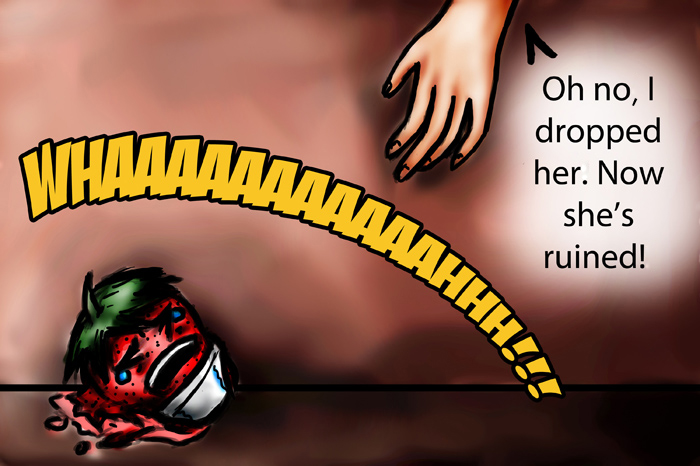A generation easily bruised
January 17, 2014
Handle with caution: egos gently bruised.
Each individual may serve to stand as a single strawberry in the supermarket—vibrant and potent but easy to spoil and blemish.
Somewhere along the lines of history we became a nation of wimps, wusses and sissies that administers awards for participation and instituted no-score sports. We teach the youth that there’s no such thing as failure or losing, only positivity and growth.
The idea that people are without flaws creates a dangerous fallacy that is both fragile and devastating. Yet, it is a notion often taught to us at a young age. We’re taught to ignore our problems in exchange for believing in invariable perfection.
Social media further accentuates the notion that we’re all raised and bred to perfection. Picture-perfect moments and sweet memories splatter Twitter, Facebook, Tumblr, and other social media sites, highlighting the high points of an individual’s life. Furthermore, the more time people spend on Facebook, the more likely that they will be suffering from depression, according to a study by the University of Michigan.
We are undoubtedly an unhappy nation. Nearly 18 percent of the population suffers from some form of anxiety disorder, according to the Anxiety and Depression Association of America. Furthermore, in 2011, the U.S. Centers for Disease Control and Prevention reported that antidepressant use skyrocketed nearly 400 percent in the last two decades.
Such alarming numbers suggest a sense of gross dissatisfaction. Perhaps we’re a generation sensitive to feelings of inadequacy and disenchantment, a generation that celebrates perfection to an extreme level, and a nation striving to accentuate the flaws through the illusion of flawlessness.
We celebrate individuality, and we entertain the notion that ‘we’re all winners here,’ yet we emphasize the downfalls and odd deviations of others. We eye one another claiming to be equals but secretly recognizing the strengths and weaknesses of others.
By fostering a mentality that attempts to suggest a faux sense of equality we undermine our personal strengths as individuals. True equality suggests and celebrates differences in strengths—a unique contribution to the proverbial table—rather than insinuating that everyone is bred to the same vein.
Instead of instituting the false ideology that life comes without losing, we should praise our mistakes and the lessons we learn from our faults. By creating a mentality based upon accepting when we are wrong, we enable ourselves to identify our personal areas of strength and weakness.
When we recognize that failure does not necessarily equate to catastrophe, we gain perspective on how to handle different situations while recognizing that different people handle circumstances subjectively.
We’re not all the same after all—why should we pretend that we are?





















